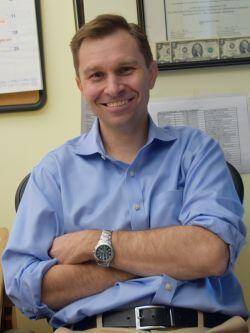
David Sinclair
Principal Investigator
Professor, Department of Genetics – Blavatnik Institute
President, Academy for Health and Lifespan Research (AHLR)
David A. Sinclair, A.O., Ph.D. is a tenured Professor in the Department of Genetics at the Paul F. Glenn Center for Biology of Aging Research at Harvard Medical School and serves as President of the Academy for Health and Lifespan Research.
He is best known for his work on understanding why we age and how to slow its effects. He obtained his Ph.D. in Molecular Genetics at the University of New South Wales, Sydney in 1995 and worked as a postdoctoral researcher at M.I.T. with Dr. Leonard Guarente where he co discovered a cause of aging for yeast as well as the role of Sir2 in epigenetic changes driven by genome instability.
In 1999, he moved to Harvard Medical School where he has been teaching aging biology and translational medicine for aging for the past 23 years. His early research was focused on the sirtuins, which are protein-modifying enzymes that respond to changing NAD+ levels and to caloric restriction (CR) with associated interests in epigenetics, energy metabolism, mitochondria, learning and memory, neurodegeneration, and cancer.
Welcome to Lifespan with Dr. David Sinclair. Dr. David Sinclair is a professor of genetics and co-director of Harvard Medical School’s Paul F. Glenn Center for Biology of Aging Research.
Thess podcasts can also be found on all podcast platforms, including Apple Podcasts and Spotify.
My goal in creating this podcast is to discuss the science behind why we age and to share the newest research on what we can do to slow, stop and even reverse aging.
In doing so, I hope to help explain the science in an easy-to-understand manner and I hope to help all our listeners in their journey to be healthier at any stage of life.
Upcoming episodes will cover: why aging is a disease, the impact of dietary choices, fasting and exercise on aging, how various supplements and prescription drugs can protect against aging, why cosmetic aging occurs and how to combat it, the benefits and advancements of biotracking, and the future of age reversal.
